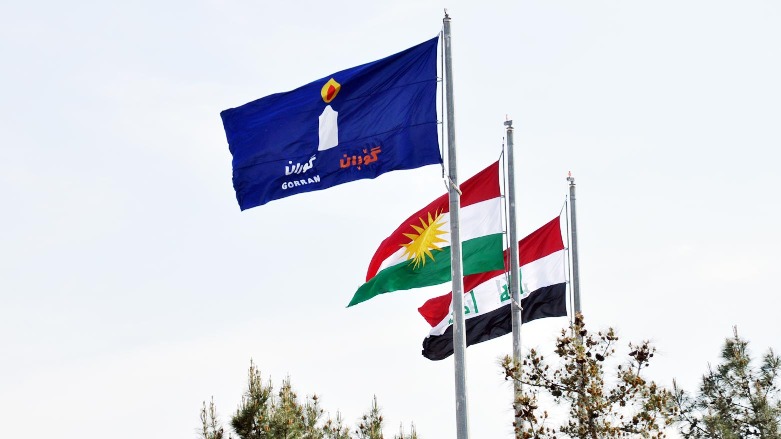Top Kurdistan officials welcome Gorran party leader re-election

ERBIL (Kurdistan 24) – The Change Movement (Gorran) on Saturday held their biennial vote to name their pick for senior positions in the party, re-electing Omar Ali Said as the leader for the second consecutive time.
The three top officeholders of the Kurdistan Region, President Nechirvan Barzani, Prime Minister Masrour Barzani, and Parliament Speaker Rewas Fayiq, congratulated Ali Said on the occasion and wished him success.
“I called Kak Omer Said Ali today to congratulate him on his re-election as General Coordinator of the Gorran Movement,” Prime Minister Masrour Barzani tweeted on Saturday. “I look forward to continuing to work closely with him and his team to build a strong, prosperous Kurdistan for all.”
I called Kak Omer Said Ali today to congratulate him on his re-election as General Coordinator of the Gorran Movement. I look forward to continuing to work closely with him and his team to build a strong, prosperous Kurdistan for all- mb.
— Masrour Barzani (@masrour_barzani) September 14, 2019
President Nechirvan Barzani also phoned Ali Said, saying “he is pleased with Mr. Ali’s re-election, praising his role in the Kurdistan political movement,” a statement from the president’s office read. The Gorran leader, in turn, expressed his gratitude for Barzani’s call.
Rewas Fayiq, in a letter, congratulated Ali Said as well, saying “she hopes that this election brings stronger relations between Gorran and all the political parties to work for Kurdistan’s national goals and serving the public.”
In 2009, Gorran entered the political scene of the Kurdistan Region, winning 25 seats in that year’s parliamentary elections. In the vote four years later, they retained 24 seats but entered the government in coalition with leading parties Kurdistan Democratic Party (KDP) and Patriotic Union of Kurdistan (PUK).
Halfway through the parliamentary term that began in 2013, Gorran’s disputes with the KDP led to it refraining from returning to the legislature. Tensions decreased between the KDP and Gorran ahead of the 2018 elections, and the two arrived at multiple government formation deals following the vote.
The party is currently part of the new participatory Kurdistan Regional Government (KRG) cabinet, holding five ministerial posts: Minister of Peshmerga, Finance and Economy, Housing and Reconstruction, Labor and Social Affairs, and Trade and Industries.
The once opposition party, however, has declined in popularity from the time of its conception, halving their 2013 gains in the latest vote, now holding 12 seats in the Kurdistan Parliament.
Editing by Karzan Sulaivany
